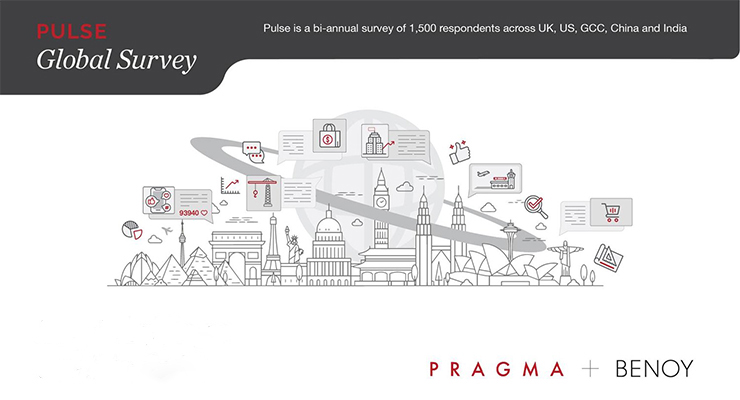Pragma’s recent survey of 1500 consumers from the UK, US, GCC, China, and India offers vital insights for stakeholders in commercial space planning such as investors, developers, asset managers, operators, brands, and designers.
It clarifies the continuing importance of key themes on the design and operation of retail spaces.

Product trials
The unique advantage of physical stores is the ability for customers to try products before buying. This emphasises the need for interactive displays and dedicated areas for product trials and demos.
Brand immersion
Physical stores are not just transactional spaces but opportunities for customers to engage with a brand’s ethos and values. This involves thoughtful store design, decor, layout, and staff training that embody the brand’s story.


Proximity and localisation
The importance of stores being close to customers’ homes has grown, especially post-pandemic. Local retail spaces should understand and cater to the specific needs of their community, particularly for older demographics.
Social Media impact
High social media engagement among shoppers in the USA, UK, and India suggests the importance of creating visually appealing and shareable moments within retail spaces to drive store visits.


Regional preferences
Different regions have specific preferences, such as a focus on value over luxury in the UK and USA, and an interest in educational experiences in the Middle East, India, and China. Additionally, there’s a growing interest in local and authentic goods in India and China.
Health and Wellbeing
A common trend across all regions is the focus on health and wellbeing, suggesting that retail spaces should prioritise these aspects in both design and product/service offerings.


Instant gratification
Shoppers prioritize quick and efficient shopping experiences. Retail spaces should focus on efficient checkout systems, clear store layouts, and effective signage for swift item location.
Geographical differences
Retail experiences and services are valued differently across regions. For example, in-store services are more crucial in India and China than in the US or UK, highlighting the need for unique in-store experiences and services that can’t be replicated online.

By integrating these insights, designers and operators of retail space can create compelling in-store experiences that resonate with their target audience.
As the lines between physical and digital retail continue to blur, there are some key strategies which can work to the benefit of both channels, such as:
- Utilizing insights from online shopping behaviors to tailor in-store experiences, such as displaying and demonstrating popular online products.
- Creating ‘Instagram-worthy’ spaces and moments to enhance in-store experience and drive visibility for a brand across channels.
- Physical stores focusing on local products — especially in regions with a growing interest in local and authentic goods (China and India) — which provide a unique shopping experience that complements the wider product availability online.
- Brands deploying hybrid promotions and loyalty programmers that reward customers for both online and offline shopping
- Online stores offering virtual tours and previews of in-store exclusive products or even online reservations for in-store experiences to help build anticipation and drive physical, store visits.
Also, heading into 2024, there are some key aspects of consumer behavior that need to be explored further, including:
- Consumers´ acceptance and willingness for AI driven experiences, and how it is impacting consumer choices and preferences.
- Interest in local traditions and experiences, and the influence of national and local preferences and cultural nuances.
- Consumers´ attitudes towards privacy, data sharing and security.
- Consumer behavior related to health-conscious products, wellness services, and mental health-related offerings, as it is becoming more relevant in this post-pandemic period.
For more information, you can find the complete survey under the following link.







